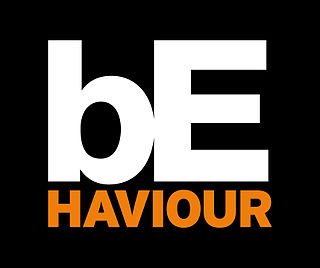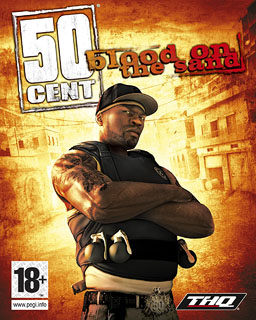Sierra Entertainment, Inc. was an American video game developer and publisher founded in 1979 by Ken and Roberta Williams. The company is known for pioneering the graphic adventure game genre, including the first such game, Mystery House. It is known for its graphical adventure game series King's Quest, Space Quest, Police Quest, Gabriel Knight, Leisure Suit Larry, and Quest for Glory, and as the original publisher of Valve's Half-Life series.

Valve Corporation, also known as Valve Software, is an American video game developer, publisher, and digital distribution company headquartered in Bellevue, Washington. It is the developer of the software distribution platform Steam and the game franchises Half-Life, Counter-Strike, Portal, Day of Defeat, Team Fortress, Left 4 Dead, and Dota.

King's Quest is a graphic adventure game series, released between 1980 and 2016 and created by the American software company Sierra Entertainment. It is widely considered a classic series from the golden era of adventure games. Following the success of its first installments, the series was primarily responsible for building the reputation of Sierra. Roberta Williams, co-founder and former co-owner of Sierra, designed all of the King's Quest games until the series' reboot in 2015.
Police Quest is a series of police simulation video games produced and published by Sierra On-Line between 1987 and 1998. The first five were adventure simulation games, the first three of which were designed by former police officer Jim Walls. The fourth to sixth titles were designed by former LAPD Chief Daryl F. Gates. Both SWAT and the real-time tactics game SWAT 2 still carried the Police Quest name and were numbered V and VI in the series, respectively, although subsequent titles in the series would drop the Police Quest title altogether and were rebranded as SWAT.

Roberta Lynn Williams is an American video game designer and writer, who co-founded Sierra On-Line with her husband, game developer Ken Williams. In 1980, her first game, Mystery House, became a modest commercial success; it is credited as the first graphic adventure game. She is also known for creating and maintaining the King's Quest series, as well as designing the full motion video game Phantasmagoria in 1995.
Gabriel Knight is a series of point-and-click adventure games released by Sierra On-Line in the 1990s created by Jane Jensen. The titular character is an author and book store owner in New Orleans who is investigating a strange series of murders when he learns he is descended from a long line of Schattenjäger. After undergoing a spiritual trial, Gabriel becomes the new Schattenjäger, called on to stop those who use supernatural methods to threaten others. To signify this, he wears the Ritter Talisman, a protective medallion. Not having supernatural abilities himself, Gabriel mainly opposes his enemies with cunning and insight after investigation and research. In the first game, he is assisted by Grace Nakimura. In the two sequels, the two act as partners against evil, with Grace being a playable character.
Dynamix, Inc. was an American developer of video games from 1984 to 2001, best known for the flight simulator Red Baron, the puzzle game The Incredible Machine, the Front Page Sports series, Betrayal at Krondor, and the online multiplayer game Tribes.

Kenneth A. Williams is an American game programmer who co-founded On-Line Systems together with his wife Roberta Williams. On-Line Systems eventually became Sierra On-Line and was ultimately renamed Sierra Entertainment. The couple were leading figures in the development of graphical adventure games. At its height, Sierra employed nearly 1,000 people prior to its acquisition in 1996.
Swordfish Studios Limited was a British video game developer based in Birmingham founded by Trevor Williams and Joan Finnegan in September 2002.
Radical Entertainment Inc. is a Canadian video game developer based in Vancouver. The studio is best known for developing The Simpsons: Hit & Run (2003), Prototype (2009) and Prototype 2 (2013), as well as entries in the Crash Bandicoot franchise. Radical Entertainment was founded in September 1991 by Rory Armes, Dave Davis, and Ian Wilkinson. It was acquired by Vivendi Games in 2005 and transferred to Activision in 2008. The studio faced significant layoffs in 2010 and 2012, with the latter causing it to cease development of original games and only support other Activision studios.
Infamous Adventures is an amateur game development company, founded in 2004 by Shawn Mills and Steven Alexander, and is dedicated to making games in the classic adventure style made famous by the releases of Sierra Entertainment and LucasArts in the 1980s and early 1990s.

Behaviour Interactive Chile Ltda. was a Chilean video game developer based in Santiago. The company was founded as Wanako Games in 2002, by Esteban Sosnik, Tiburcio de la Cárcova, Santiago Bilinkis, Wenceslao Casares. The studio was first acquired by Vivendi Games in February 2007 and ended up under Artificial Mind and Movement in December 2008. When Artificial Mind and Movement was renamed Behaviour Interactive in 2010, Wanako Games was renamed Behaviour Santiago. Behaviour Santiago was shut down on 20 November 2017.

High Moon Studios, Inc. is an American video game developer initially formed in 2001. After nearly a year as an independent studio, the developer was acquired by Vivendi Games in January 2006 and placed under Sierra Entertainment. It is currently owned by Activision. It has developed multiple Transformers video games and assisted in the development of select Call of Duty games, as well as Destiny.

Activision Blizzard, Inc. is an American video game holding company based in Santa Monica, California. Activision Blizzard currently includes five business units: Activision Publishing, Blizzard Entertainment, King, Major League Gaming, and Activision Blizzard Studios.

50 Cent: Blood on the Sand is a third-person shooter video game developed by Swordfish Studios and published by THQ for the PlayStation 3 and Xbox 360. It serves as the sequel to 50 Cent: Bulletproof, and was released in February 2009. The game centers around a fictional 50 Cent and G-Unit concert, set in an unspecified location in the Middle East. After the group's payment, a diamond-encrusted skull, is stolen, they must fight to retrieve it back from the thieves.
A fan game is a video game that is created by fans of a certain topic or IP. They are usually based on one, or in some cases several, video game entries or franchises. Many fan games attempt to clone or remake the original game's design, gameplay, and characters, but it is equally common for fans to develop a unique game using another as a template. Though the quality of fan games has always varied, recent advances in computer technology and in available tools, e.g. through open source software, have made creating high-quality games easier. Fan games can be seen as user-generated content, as part of the retrogaming phenomena, and as expression of the remix culture.

Universal Interactive was an American video game publisher. The company was established on January 4, 1994, and led by Skip Paul and Robert Biniaz of MCA. It was best known for producing the Crash Bandicoot and Spyro platform game franchises.
There have been several King's Quest fangames both original and retellings/remakes of the original games that have been released by various developers.
2015, Inc. was an American video game developer based in Tulsa, Oklahoma. The studio is best known for developing Medal of Honor: Allied Assault.
Geometry Wars is a series of top-down multi-directional shooter video games developed by Bizarre Creations, and, later, Lucid Games. Originally published by Microsoft Games Studios, the first title was included as a minigame in Project Gotham Racing 2 for Xbox. An updated version was released in 2005 as a launch title for Xbox 360 and later ported to Microsoft Windows.









